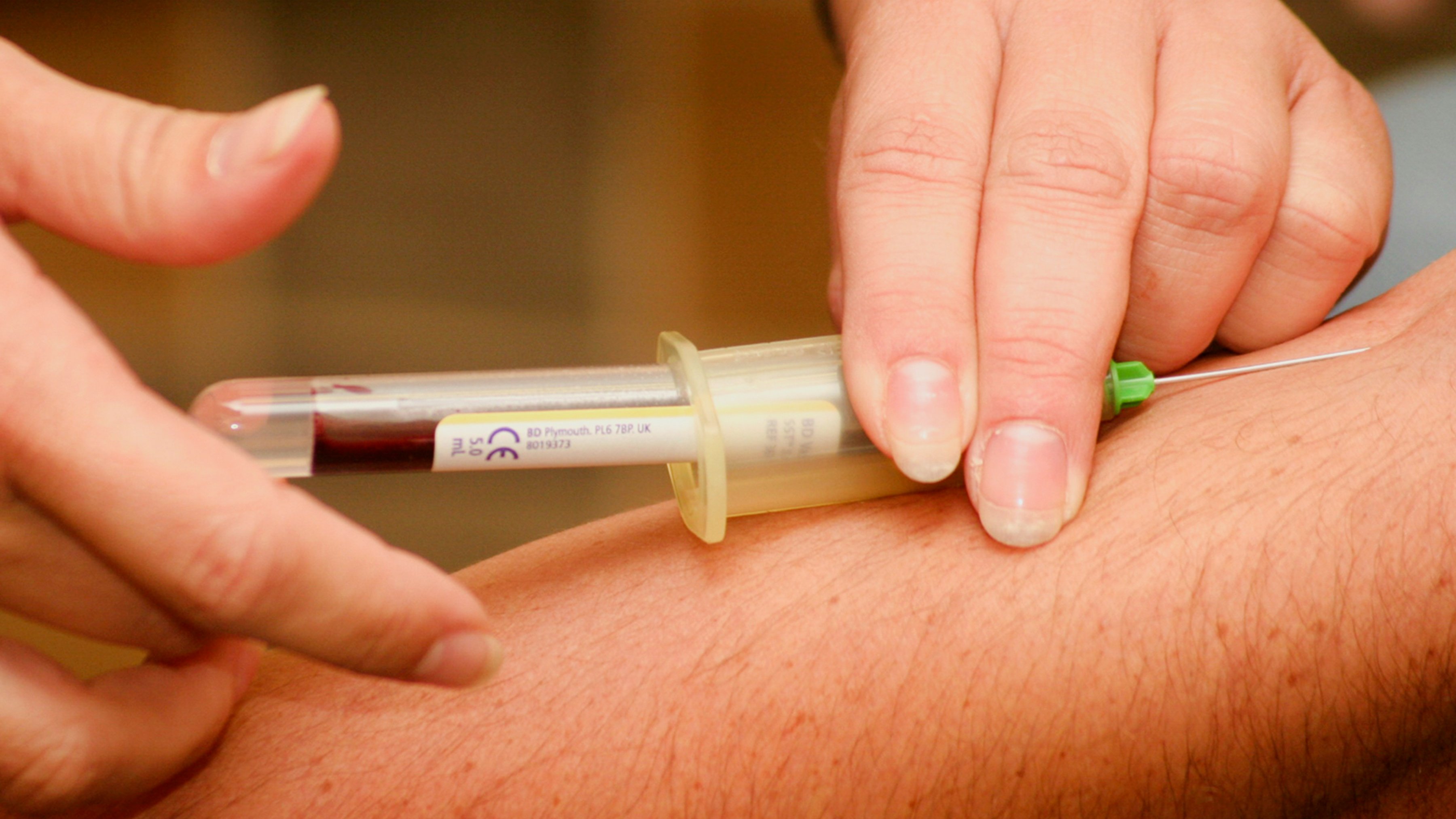
Have you ever considered how the hours you spend sleeping might affect your heart health? While diet and exercise are often highlighted as key players in managing cholesterol, sleep is an equally important factor that’s frequently overlooked. Let’s explore this connection together, asking questions to uncover how sleep influences cholesterol levels and what you can do to improve your sleep, especially in mid-life.
What Do You Know About Cholesterol?
To start, what do you think cholesterol does in your body? Cholesterol is a waxy substance in your blood, essential for building healthy cells, producing hormones, and aiding digestion. But when levels get too high, it can lead to heart disease. There are two main types:
- LDL (Low-Density Lipoprotein): Often called "bad" cholesterol, high levels can cause plaque buildup in arteries, increasing heart disease risk.
- HDL (High-Density Lipoprotein): Known as "good" cholesterol, it helps remove LDL from your bloodstream, protecting your heart.
There’s also triglycerides, another type of fat in the blood that, when elevated, can contribute to heart issues. How do you think your daily habits, like sleep, might influence these levels?
How Might Sleep Affect Your Cholesterol?
Let’s consider why sleep matters for cholesterol. When you sleep, your body repairs itself, regulates hormones, and reduces stress. What happens if you don’t get enough rest? Research suggests that sleeping less than 6 hours per night may lead to higher triglycerides and lower HDL levels, particularly in women. On the other hand, sleeping too much—say, more than 8 hours—might also disrupt cholesterol balance. Have you noticed how your sleep patterns affect your energy or food choices the next day?
Conditions like sleep apnea, where breathing stops briefly during sleep, seem to have a strong link to cholesterol. Why do you think interrupted sleep might raise LDL or lower HDL? Studies indicate that sleep apnea is associated with higher total cholesterol, LDL, and triglycerides, and lower HDL, increasing cardiovascular risk.
What Does the Research Say?
Let’s look at some studies to understand this better. A study with over 4,000 adults found that women sleeping less than 5 hours had higher triglycerides and lower HDL compared to those getting 7-8 hours. Men sleeping less than 6 hours showed higher LDL levels. Another study on young adults suggested that insufficient sleep increases appetite for high-cholesterol foods and reduces physical activity, both of which can raise cholesterol. Interestingly, each additional hour of sleep improved cholesterol levels, especially in women. What do these findings suggest about the importance of sleep duration?
A more technical study explored sleep restriction (4 hours per night for 5 nights) and found changes in lipid profiles, including reduced LDL particles and a trend toward increased HDL particles. However, it also noted down-regulation of genes involved in cholesterol transport, which could increase heart risk over time. How might these genetic changes affect long-term health?
Sleep apnea research, involving 8,592 participants, showed a clear link to higher LDL and triglycerides and lower HDL, especially in those with severe cases. What lifestyle factors, like weight or stress, might connect sleep apnea and cholesterol?
Study Participants Key Findings Source Sleep Duration 1,666 men, 2,329 women <5 hours sleep linked to high triglycerides, low HDL in women; >8 hours also unfavorable Healthline Young Adults Not specified Insufficient sleep increased appetite for high-cholesterol foods, reduced activity; more sleep improved cholesterol Healthline Sleep Restriction 14 cases, 6 controls 4 hours/night for 5 nights reduced LDL particles, increased HDL trend, but down-regulated cholesterol transport genes Nature Sleep Apnea 8,592 participants Higher total cholesterol, LDL, triglycerides; lower HDL, especially with severe apnea Medical News Today
How Does Sleep Impact LDL and HDL Specifically?
Let’s reflect on how sleep directly affects LDL and HDL. If you sleep less than 6 hours, your body may produce more cortisol, a stress hormone. How do you think stress might influence cholesterol? Cortisol can raise LDL and lower HDL. Lack of sleep also increases ghrelin (which makes you hungry) and decreases leptin (which signals fullness), potentially leading to poor food choices that raise LDL.
On the flip side, getting 7-8 hours of sleep seems to optimize HDL levels, helping your body clear LDL more effectively. Why might women be more sensitive to these effects? Research suggests hormonal differences may play a role, particularly in premenopausal women, where sleep restriction lowered LDL but not in men or postmenopausal women.
What Can You Do to Improve Sleep in Mid-Life?
As we reach mid-life, sleep can become more elusive. What challenges do you face with sleep as you age? Here are some strategies to improve sleep quality, which could help manage cholesterol:
- Consistent Sleep Schedule: Why might going to bed and waking up at the same time help? It regulates your body’s internal clock.
- Relaxing Bedtime Routine: What activities calm you before bed? Reading or meditating can signal your body to wind down.
- Optimize Sleep Environment: How does your bedroom setup affect your sleep? A dark, quiet, cool room promotes rest.
- Limit Screen Time: Why do screens disrupt sleep? Blue light suppresses melatonin, so avoid devices an hour before bed.
- Dietary Choices: How might late-night snacks affect sleep? Avoid heavy meals, caffeine, or alcohol close to bedtime.
- Exercise: How does physical activity influence sleep? Regular exercise improves sleep, but avoid intense workouts near bedtime.
- Stress Management: What stress-relief techniques work for you? Deep breathing or yoga can reduce cortisol levels.
- Professional Help: If sleep issues persist, what might be the cause? Consulting a doctor can uncover issues like sleep apnea.
Which of these strategies could you try tonight to improve your sleep?
Why Does This Matter?
Let’s reflect: how might prioritizing sleep change your approach to heart health? The evidence suggests that 7-8 hours of quality sleep can support healthy cholesterol levels by optimizing HDL and keeping LDL in check. Conditions like sleep apnea highlight the need to address sleep quality, not just quantity. By exploring these connections and adopting better sleep habits, especially in mid-life, you can take a proactive step toward a healthier heart. What’s one small change you could make to your sleep routine to start this journey?
Managing Cholesterol: The Sleep Connection
Have you ever thought about how your sleep habits might influence your cholesterol levels? While diet and exercise are often the focus for heart health, sleep plays a critical role that’s just as important. Let’s dive into the science behind this connection, explore key studies, and discover practical ways to improve sleep, particularly in mid-life, to support healthy cholesterol levels.
Understanding Cholesterol
What is cholesterol, and why does it matter? Cholesterol is a waxy, fat-like substance in your blood, vital for building cell membranes, producing hormones, and aiding digestion. However, too much cholesterol can lead to plaque buildup in arteries, increasing the risk of heart disease and stroke. There are two primary types:
- LDL (Low-Density Lipoprotein): Known as "bad" cholesterol, high LDL levels can cause plaque to accumulate in arteries, raising heart disease risk.
- HDL (High-Density Lipoprotein): Called "good" cholesterol, HDL helps remove LDL from the bloodstream, transporting it to the liver for elimination.
- Triglycerides: Another type of blood fat, high triglyceride levels, especially when combined with low HDL or high LDL, can contribute to heart issues.
Maintaining a balance between LDL, HDL, and triglycerides is crucial for heart health. But how does sleep fit into this equation?
The Sleep-Cholesterol Connection
Why might the amount and quality of your sleep affect your cholesterol? Sleep is a time when your body repairs itself, regulates hormones, and reduces stress. Research suggests that both too little and too much sleep can disrupt this balance, impacting cholesterol levels.
- Short Sleep Duration: Sleeping less than 6 hours per night is linked to higher triglycerides and lower HDL cholesterol. A study of over 4,000 adults found that women sleeping less than 5 hours had significantly higher triglycerides and lower HDL compared to those getting 7-8 hours. Men sleeping less than 6 hours often showed higher LDL levels.
- Long Sleep Duration: Sleeping more than 8 hours may also lead to unfavorable cholesterol profiles, such as lower HDL and higher triglycerides, though the evidence is less consistent.
- Sleep Apnea: This condition, where breathing stops briefly during sleep, is strongly associated with high cholesterol. Studies show that individuals with sleep apnea have higher total cholesterol, LDL, and triglycerides, and lower HDL, increasing cardiovascular risk.
How do these effects happen? Lack of sleep can increase cortisol, a stress hormone that may raise LDL and lower HDL. It also disrupts appetite-regulating hormones like ghrelin (which increases hunger) and leptin (which signals fullness), leading to dietary choices that can elevate cholesterol. Additionally, sleep deprivation may affect genes involved in cholesterol metabolism, potentially reducing the body’s ability to clear LDL effectively.
Impact on LDL and HDL
Let’s explore how sleep specifically affects LDL and HDL. Research indicates that insufficient sleep (less than 6 hours) can lead to:
- Higher LDL: Men and women sleeping less than 6 hours often have elevated LDL levels, increasing the risk of plaque buildup.
- Lower HDL: Short sleep durations, particularly in women, are associated with reduced HDL, limiting the body’s ability to remove LDL.
- Hormonal Effects: Lack of sleep increases cortisol and ghrelin while decreasing leptin, which can lead to overeating high-cholesterol foods, further raising LDL.
Conversely, getting 7-8 hours of sleep seems to optimize HDL levels, supporting the body’s ability to clear LDL. A study on young adults found that each additional hour of sleep improved cholesterol profiles, with women showing greater sensitivity to these effects, possibly due to hormonal differences. Why might women be more affected? Premenopausal women, in particular, showed reduced LDL with sleep restriction in one study, but this wasn’t seen in men or postmenopausal women, suggesting a complex interplay of hormones and sleep.
Key Studies and Findings
What does the research tell us about sleep and cholesterol? Here are some key studies that shed light on this relationship:
Study Participants Key Findings Source Sleep Duration and Lipid Levels 1,666 men, 2,329 women over 20 Sleeping <5 hours linked to high triglycerides, low HDL in women; >8 hours also unfavorable; men with <6 hours had higher LDL Healthline Young Adults and Sleep Young adults, not specified Insufficient sleep increased appetite for high-cholesterol foods, reduced activity, and raised stress; each additional hour of sleep improved cholesterol, especially in women Healthline Experimental Sleep Restriction 14 cases, 6 controls 4 hours/night for 5 nights reduced LDL and VLDL particles, showed a trend toward increased HDL, but down-regulated cholesterol transport genes, potentially increasing heart risk Nature Sleep Apnea and Cholesterol 8,592 participants Higher total cholesterol, LDL, triglycerides, and lower HDL, especially in severe cases Medical News Today Adolescent Sleep and Future Cholesterol Adolescents, longitudinal study Short sleep in adolescent women predicted higher cholesterol in young adulthood PubMed
These studies highlight that both sleep duration and quality matter. For example, a study in Sleep showed that women sleeping less than 5 hours had a higher risk of high triglycerides and low HDL, while men were more likely to see increased LDL with short sleep. Another study found that sleep apnea significantly worsens cholesterol profiles, with severe cases linked to greater imbalances. Experimental research also suggests that even short-term sleep restriction can alter lipid metabolism at a genetic level, potentially increasing long-term cardiovascular risk.
Tips for Better Sleep in Mid-Life
As we enter mid-life, sleep patterns often change, making it harder to get quality rest. What challenges do you face with sleep as you age? Here are practical strategies to improve sleep, which may help manage cholesterol:
- Consistent Sleep Schedule: Going to bed and waking up at the same time daily helps regulate your body’s internal clock, promoting better sleep.
- Relaxing Bedtime Routine: Activities like reading, meditating, or taking a warm bath can signal your body to wind down.
- Optimize Sleep Environment: A dark, quiet, and cool bedroom (around 60-67°F or 15-20°C) enhances sleep quality. Consider earplugs or a white noise machine if needed.
- Limit Screen Time: Blue light from phones or computers suppresses melatonin, a hormone that regulates sleep. Avoid screens at least an hour before bed.
- Dietary Adjustments: Avoid heavy meals, caffeine, or alcohol close to bedtime, as they can disrupt sleep.
- Regular Exercise: Physical activity, like walking or yoga, improves sleep, but avoid intense workouts within a few hours of bedtime.
- Stress Management: Techniques like deep breathing, meditation, or journaling can reduce cortisol levels, helping you relax.
- Seek Professional Help: Persistent sleep issues may indicate conditions like sleep apnea. Consult a healthcare provider for diagnosis and treatment, such as cognitive behavioral therapy for insomnia (CBT-I) or medical interventions.
Which of these strategies could you incorporate into your routine? For example, setting a consistent bedtime or reducing screen time might be a good starting point.
Conclusion
Why should you care about the sleep-cholesterol connection? The evidence suggests that getting 7-8 hours of quality sleep can optimize HDL, keep LDL in check, and reduce triglycerides, supporting heart health. Conditions like sleep apnea and habits like insufficient sleep can disrupt this balance, increasing cardiovascular risk. By prioritizing sleep, especially in mid-life when sleep challenges are common, you can take a proactive step toward managing cholesterol and improving overall well-being. What’s one change you could make tonight to sleep better and support your heart?
Sources
https://www.healthline.com/health/high-cholesterol/sleep-and-cholesterol
https://www.nature.com/articles/srep24828
https://www.medicalnewstoday.com/articles/cholesterol-and-sleep-apnea
https://pubmed.ncbi.nlm.nih.gov/20614855/
David Anderson
Editorial team member at Sleep Now

